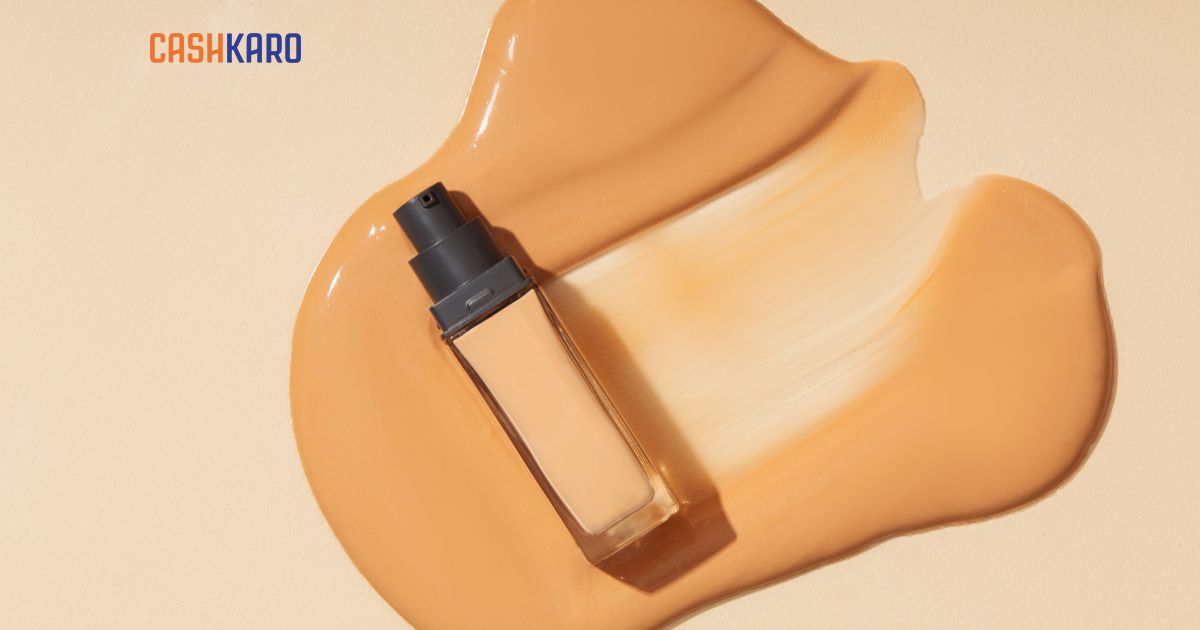Have you ever wondered whether to grab a face wash or a cleanser? If so, you’re not alone. Many of us face this dilemma, especially when we’re trying to do what’s best for our skin. In the world of skincare, terms are often used interchangeably, leading to confusion. However, each has its own set of benefits, and understanding the difference can truly elevate your skincare routine.
So, let’s take a little journey together and uncover what sets these two apart. By the end, you’ll not only know the difference between face wash and cleanser but also how to use them to give your skin exactly what it needs. Ready to find out? Let’s get started!
What is a Face Wash?
A face wash is a highly used skincare product designed specifically to deeply cleanse your skin by removing dirt, oil, and impurities from the surface. It usually comes in a liquid foam or non-foaming form, making it ideal for people with oily or acne-prone skin. The primary purpose of a face wash is to clean your face thoroughly, leaving it feeling refreshed and less greasy.
Key Features of a Face Wash:
- Deep Cleansing–They penetrate the pores, removing excess oil and impurities.
- Foaming Action–Most foam up when mixed with water, creating a rich lather that gives a sense of freshness and cleanliness.
- Oil Control–Contains ingredients that help control oil production, making them beneficial for those who struggle with greasy skin or frequent breakouts.
- Daily Use–Face washes are generally mild enough for daily use, typically in the morning and evening, to maintain clean and clear skin.
Who Should Use a Face Wash?
Face washes are especially beneficial for those with oily, combination, or acne-prone skin. If your skin tends to get greasy during the day or you struggle with clogged pores and breakouts, a face wash can help manage these issues by keeping your skin clean and balanced.
Top Face Washes to Buy:
What is a Cleanser?
A cleanser, on the other hand, is a gentle skincare product designed to remove dirt, makeup, excess oil, and impurities from your skin without stripping it of its natural moisture. They are available in various forms, such as cream, lotion, oil, or micellar water, and are formulated to be mild and nourishing on the skin. Being versatile, cleansers suit all skin types, especially sensitive or dry skin.
Key Features of a Cleanser:
- Gentle Cleaning–They are designed to clean your skin without causing irritation or dryness, dissolving impurities, and leaving your skin clean yet hydrated.
- Non-Foaming–Many cleansers, especially those in cream or lotion form, do not foam up. They are more soothing and less abrasive, making them ideal for sensitive or easily irritated skin.
- Moisturising–Cleansers often contain hydrating ingredients like glycerin, aloe vera, or hyaluronic acid, maintaining the skin’s moisture balance and preventing dryness.
- Versatility–They come in various forms—creams, oils, balms, micellar water, and more—allowing you to choose the type that best suits your skin’s needs.
Who Should Use a Cleanser?
Cleansers are suitable for all skin types, but they are especially beneficial for people with dry, sensitive, or mature skin. If your skin tends to feel tight or dry after washing, a cleanser might be a better choice than a face wash. Additionally, if you wear makeup daily, a cleanser is essential for effectively removing it without stripping your skin of its natural oils.
Top Cleansers to Buy:
Cleanser vs Face Wash: Key Differences
Still trying to understand the difference between face wash and cleanser? If yes, here’s a detailed breakdown. Understand the difference in choosing the right product for your skincare routine.
| Aspect | Face Wash | Cleanser |
| Purpose | Deeply cleanses the skin, removing excess oil, dirt, and impurities. It helps to keep pores clear and prevent breakouts. | Gently removes makeup, dirt, and impurities without stripping the natural oils. It maintains natural balance and provides hydration. |
| Formulation | It usually has a foaming or gel-like texture with active ingredients like salicylic acid or benzoyl peroxide to target acne and excess oil production. | Available in creams, lotions, oils, micellar water, and balms with hydrating ingredients like glycerin or aloe vera to hydrate and calm the skin. |
| Skin Type Compatibility | Best suited for oily, combination, or acne-prone skin. However, face washes can be too harsh for dry or sensitive skin. | Ideal for all skin types but particularly beneficial for dry, sensitive, or mature skin, making them good for skin that needs a softer touch. |
| Cleansing Action | Provides an intensive cleanse, removing deep-seated impurities and excess oil, making them ideal for removing deep-seated impurities. | Offers a mild, gentle cleanse that focuses on removing surface impurities like makeup and daily grime without disturbing the skin’s natural moisture barrier. |
| Usage Frequency | Typically used once or twice a day, particularly in the morning. However, overuse can lead to dryness or irritation. | Can be used daily, both in the morning and evening, making it suitable for frequent use without the risk of over-drying or irritating the skin. |
| Effect on Skin | Often leaves the skin feeling squeaky, clean, and refreshed. It may also cause a tight or dry feeling if your skin is not oily. | Leaves the skin feeling soft, supple, and hydrated, without the tightness that can come from harsher cleansers or face washes. |
Cleanser vs Face Wash: Which One Should You Choose?
Choosing between a face wash and a cleanser depends on your skin type, specific skincare needs, and personal preferences. Here’s a guide to help you make the best choice:
If You Have Oily or Acne-Prone Skin– Face Wash
If your skin tends to get oily throughout the day or if you struggle with frequent breakouts, a face wash might be the better choice. It is formulated to deeply cleanse the skin, removing excess oil and impurities that can clog pores and lead to acne.
If You Have Dry or Sensitive Skin– Cleanser
For those with dry, sensitive, or easily irritated skin, a cleanser is generally the best option. It is formulated to gently remove dirt, makeup, and impurities without stripping the skin of its natural moisture. It’s gentle, moisturising, and less likely to cause dryness or irritation.
If You Have Combination Skin– Both Face Wash & Cleanser
People with combination skin—whose some areas are oily and others are dry—might benefit from using both a face wash and a cleanser. This approach ensures your skin stays balanced—deeply cleansed in the morning and gently cared for in the evening. You can use a face wash in the morning to control oil and a cleanser in the evening to remove makeup and hydrate the skin.
If You Wear Makeup Regularly– Cleanser
A cleanser is particularly effective in removing makeup and other impurities at the end of the day. It is formulated to dissolve makeup, including waterproof products, without the need for harsh scrubbing. Also, it is gentle, ensuring your skin remains healthy and hydrated.
Can You Use Face Wash And Facial Cleanser Together?
Yes, you can use both a face wash and a facial cleanser together. Doing so addresses different skin needs at different times of the day, which can actually enhance your skincare routine. Here’s how you can incorporate both into your regimen:
Morning Routine– Start with a FACE WASH
In the morning, your skin might feel oily or greasy due to overnight sebum production. Using a face wash in your morning routine can help remove this excess oil, cleanse away any impurities, and leave your skin feeling refreshed and ready for the day. After washing your face, follow your regular skincare routine, such as applying toner, moisturiser, and sunscreen.
Evening Routine– Use a CLEANSER
After a long day, your skin is likely to be covered in dirt, sweat, and makeup. A facial cleanser is perfect for gently removing all these impurities without stripping your skin of its natural oils. Finish your routine with a toner, serum, or moisturiser to nourish and hydrate your skin overnight.
Note: If your skin is particularly sensitive, be mindful of how often you use both products. Also, ensure that the ingredients in your face wash and cleanser complement each other and don’t cause any adverse reactions.
Things to Consider When Using a Face Wash or a Cleanser
While skin type is the major factor in deciding whether to use a face wash or a cleanser, there are other considerations too that will help you choose the right product and routine for your skin. Here are the factors that you need to keep in mind:
Frequency of Use
- Face Wash: Typically used once or twice daily. Overuse can lead to dryness or irritation, especially if you have sensitive skin.
- Cleanser: Can be used twice a day, morning and evening, but ensure it’s not too harsh for your skin.
Ingredients
Look for ingredients that match your skin’s needs, such as salicylic acid for acne-prone skin or glycerin for hydration. Steer clear of products with alcohol, sulfates, or fragrances that can irritate or dry out your skin.
Skin Reactions
Test new products on a small patch of skin before full application to avoid allergic reactions. If you notice redness, itching, or dryness, consider switching to a gentler product.
Seasonal Changes
In winter, skin tends to be drier, so a hydrating cleanser is more appropriate. However, in summer, oily skin is more common, so a face wash that controls oil can be more beneficial.
Final Words
Here we come to an end. Understanding the difference between face wash and cleanser is key to crafting a skincare routine that truly benefits your skin. While both products aim to clean your face, they serve distinct purposes and are best suited for different skin types and concerns. By choosing the right product—or even combining both in your daily routine—you can ensure that your skin stays clean, balanced, and healthy. Remember, the best skincare routine is one that is tailored to your unique skin needs, helping you achieve a radiant, glowing complexion every day.
Frequently Asked Questions
Can you use face cleanser instead of face wash?
Yes, you can use a face cleanser instead of a face wash, especially if you have dry or sensitive skin. Cleansers are gentler and still effectively remove dirt and impurities without stripping moisture.
Should I use both cleanser and face wash?
You can use both if your skin has different needs. For example, a face wash in the morning to control oil and a cleanser in the evening to remove makeup and hydrate your skin.
Face wash or cleanser, which is the best?
It depends on your skin type and needs. Face wash is better for oily, acne-prone skin, while a cleanser is ideal for dry, sensitive, or mature skin.
Is cleanser good for oily skin?
Yes, a cleanser can be good for oily skin, especially if it’s formulated for your skin type. However, if you need deep cleansing, you might want to pair it with a face wash.
















